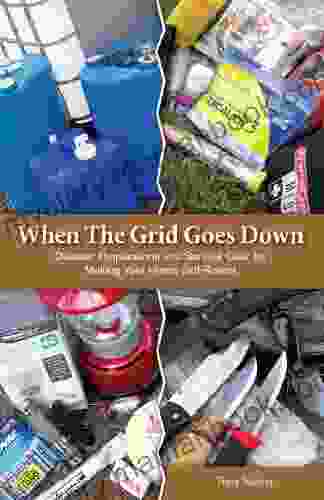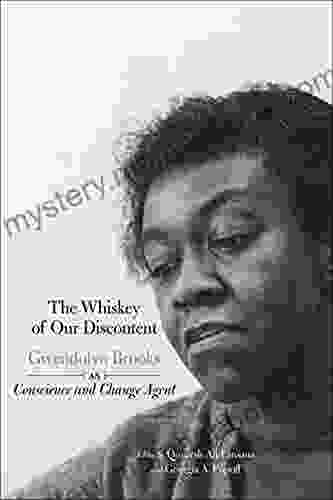If There Is Something to Desire: Exploring the Psychological, Emotional, and Social Aspects of Human Desire

Desire is a fundamental human emotion that drives us to seek out things we believe will bring us happiness, fulfillment, or pleasure. But what exactly is desire? Where does it come from? And how does it shape our thoughts, feelings, and actions?
4.1 out of 5
| Language | : | English |
| File size | : | 2772 KB |
| Text-to-Speech | : | Enabled |
| Screen Reader | : | Supported |
| Enhanced typesetting | : | Enabled |
| Print length | : | 129 pages |
Psychologists have studied desire for centuries, and there are many different theories about its origins and nature. Some believe that desire is a basic instinct, hardwired into our brains. Others believe that it is learned through experience, as we come to associate certain things with pleasure or reward.
Regardless of its origins, desire is a powerful force in human life. It motivates us to work hard, to achieve our goals, and to connect with others. It can also lead to conflict, disappointment, and even addiction.
In this article, we will explore the psychological, emotional, and social aspects of human desire. We will discuss the different theories about its origins and nature, and we will examine how it affects our thoughts, feelings, and actions.
The Psychology of Desire
Psychologists have developed several different theories to explain the psychology of desire. One of the most influential theories is Freud's psychoanalytic theory.
Freud believed that desire is a fundamental part of human nature. He argued that we are all born with certain basic needs, such as the need for food, water, and shelter. These needs drive us to seek out things that will satisfy them.
Freud also believed that our desires are often unconscious. We may not be aware of what we truly desire, but it still influences our thoughts, feelings, and actions.
Another influential theory of desire is Piaget's cognitive-developmental theory. Piaget believed that desire is a product of our cognitive development. As we grow and learn, we develop new desires and goals.
Piaget also believed that our desires are influenced by our social environment. We learn what is desirable and what is not from the people around us.
Maslow's hierarchy of needs is another well-known theory of desire. Maslow believed that we have a hierarchy of needs, starting with basic physiological needs, such as food and water, and moving up to more complex needs, such as love and self-actualization.
Maslow argued that we must satisfy our basic needs before we can move on to higher-level needs. For example, we cannot focus on self-actualization if we are struggling to meet our basic needs.
Erikson's theory of psychosocial development is another theory that addresses the role of desire in human development. Erikson believed that we pass through a series of psychosocial stages throughout our lives, each of which is associated with a particular desire or need.
For example, in infancy, we have a basic need for trust and security. In adolescence, we develop a desire for independence and autonomy. And in adulthood, we may desire intimacy and love.
Bandura's social cognitive theory is another theory that addresses the role of desire in human behavior. Bandura believed that our desires are influenced by our social environment and our expectations.
For example, if we see someone else achieving something we desire, we may be more likely to believe that we can achieve it ourselves. This is known as the "vicarious reinforcement" effect.
The Emotional Aspects of Desire
Desire is closely linked to emotion. When we desire something, we often feel a strong emotional pull towards it. This pull can be positive or negative.
For example, we may feel a positive emotional pull towards someone we love or a job we enjoy. We may feel a negative emotional pull towards a task we find difficult or a person we dislike.
The emotional pull of desire can be very powerful. It can motivate us to take action, even when we know it is not in our best interests.
For example, we may desire a certain food even though we know it is unhealthy. We may desire a certain job even though we know it will require long hours and a lot of stress.
The emotional pull of desire can also lead to disappointment and frustration. If we do not achieve our desires, we may feel let down, angry, or even depressed.
The Social Aspects of Desire
Desire is also a social phenomenon. Our desires are shaped by our culture, our social class, and our relationships with others.
For example, in some cultures, it is considered desirable to be wealthy and successful. In other cultures, it is considered more desirable to be humble and compassionate.
Our social class can also influence our desires. For example, people who grow up in poverty may have different desires than people who grow up in wealth.
Our relationships with others can also shape our desires. For example, we may desire to be loved and accepted by our family and friends.
The social aspects of desire can be both positive and negative. On the one hand, our desires can help us to connect with others and build relationships.
On the other hand, our desires can also lead to conflict and competition. For example, we may desire the same job as someone else, or we may desire the same person.
Desire is a complex and multifaceted phenomenon. It is influenced by our psychology, our emotions, and our social environment.
Understanding the different aspects of desire can help us to make more informed decisions about how to pursue our goals and avoid disappointment.
It is important to remember that desire is not always a bad thing. In fact, it can be a powerful force for good in our lives.
When we desire something, we are motivated to work hard, to achieve our goals, and to connect with others. Desire can help us to live more fulfilling and meaningful lives.
4.1 out of 5
| Language | : | English |
| File size | : | 2772 KB |
| Text-to-Speech | : | Enabled |
| Screen Reader | : | Supported |
| Enhanced typesetting | : | Enabled |
| Print length | : | 129 pages |
Do you want to contribute by writing guest posts on this blog?
Please contact us and send us a resume of previous articles that you have written.
 Top Book
Top Book Novel
Novel Fiction
Fiction Nonfiction
Nonfiction Literature
Literature Paperback
Paperback Hardcover
Hardcover E-book
E-book Audiobook
Audiobook Bestseller
Bestseller Classic
Classic Mystery
Mystery Thriller
Thriller Romance
Romance Fantasy
Fantasy Science Fiction
Science Fiction Biography
Biography Memoir
Memoir Autobiography
Autobiography Poetry
Poetry Drama
Drama Historical Fiction
Historical Fiction Self-help
Self-help Young Adult
Young Adult Childrens Books
Childrens Books Graphic Novel
Graphic Novel Anthology
Anthology Series
Series Encyclopedia
Encyclopedia Reference
Reference Guidebook
Guidebook Textbook
Textbook Workbook
Workbook Journal
Journal Diary
Diary Manuscript
Manuscript Folio
Folio Pulp Fiction
Pulp Fiction Short Stories
Short Stories Fairy Tales
Fairy Tales Fables
Fables Mythology
Mythology Philosophy
Philosophy Religion
Religion Spirituality
Spirituality Essays
Essays Critique
Critique Commentary
Commentary Glossary
Glossary Bibliography
Bibliography Index
Index Table of Contents
Table of Contents Preface
Preface Introduction
Introduction Foreword
Foreword Afterword
Afterword Appendices
Appendices Annotations
Annotations Footnotes
Footnotes Epilogue
Epilogue Prologue
Prologue Philip Armstrong
Philip Armstrong Anthony Smith
Anthony Smith Z Jeffries
Z Jeffries Luigi Andrea Berto
Luigi Andrea Berto Paul Power
Paul Power Daramonifah Cooper
Daramonifah Cooper Nikos Kolesis
Nikos Kolesis Cheryl Orlassino
Cheryl Orlassino Jon Land
Jon Land Nora Jessica
Nora Jessica Peter O Mahoney
Peter O Mahoney Caimh Mcdonnell
Caimh Mcdonnell Petros C Mavroidis
Petros C Mavroidis Tess Oliver
Tess Oliver Phoebe Garnsworthy
Phoebe Garnsworthy Revised Ed Edition Kindle Edition
Revised Ed Edition Kindle Edition Travis Breeding
Travis Breeding Ivy Cirillo
Ivy Cirillo Ian St Martin
Ian St Martin Kevin Jackson
Kevin Jackson
Light bulbAdvertise smarter! Our strategic ad space ensures maximum exposure. Reserve your spot today!

 Virginia WoolfLearn The Secrets To Building Wealth And Avoid The Devastating Effects Of...
Virginia WoolfLearn The Secrets To Building Wealth And Avoid The Devastating Effects Of... Austin FordFollow ·13.8k
Austin FordFollow ·13.8k Robert Louis StevensonFollow ·16.5k
Robert Louis StevensonFollow ·16.5k Ernesto SabatoFollow ·8.2k
Ernesto SabatoFollow ·8.2k Louis HayesFollow ·10.1k
Louis HayesFollow ·10.1k Demetrius CarterFollow ·4.5k
Demetrius CarterFollow ·4.5k T.S. EliotFollow ·17.2k
T.S. EliotFollow ·17.2k Fredrick CoxFollow ·12.2k
Fredrick CoxFollow ·12.2k Winston HayesFollow ·8.4k
Winston HayesFollow ·8.4k

 Luke Blair
Luke BlairWhen the Grid Goes Down: Disaster Preparations and...
In today's modern...

 Diego Blair
Diego BlairComputer Virus Guide: Everything You Need to Know to Stay...
Computer viruses...

 Dale Mitchell
Dale MitchellThe Whiskey of Our Discontent: A Literary Exploration of...
John Steinbeck's The...

 Mark Mitchell
Mark MitchellA Culinary Odyssey: Exploring the Delectable World of...
An to Southern...
4.1 out of 5
| Language | : | English |
| File size | : | 2772 KB |
| Text-to-Speech | : | Enabled |
| Screen Reader | : | Supported |
| Enhanced typesetting | : | Enabled |
| Print length | : | 129 pages |














